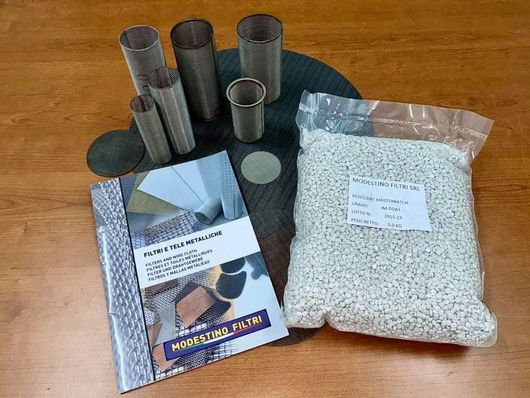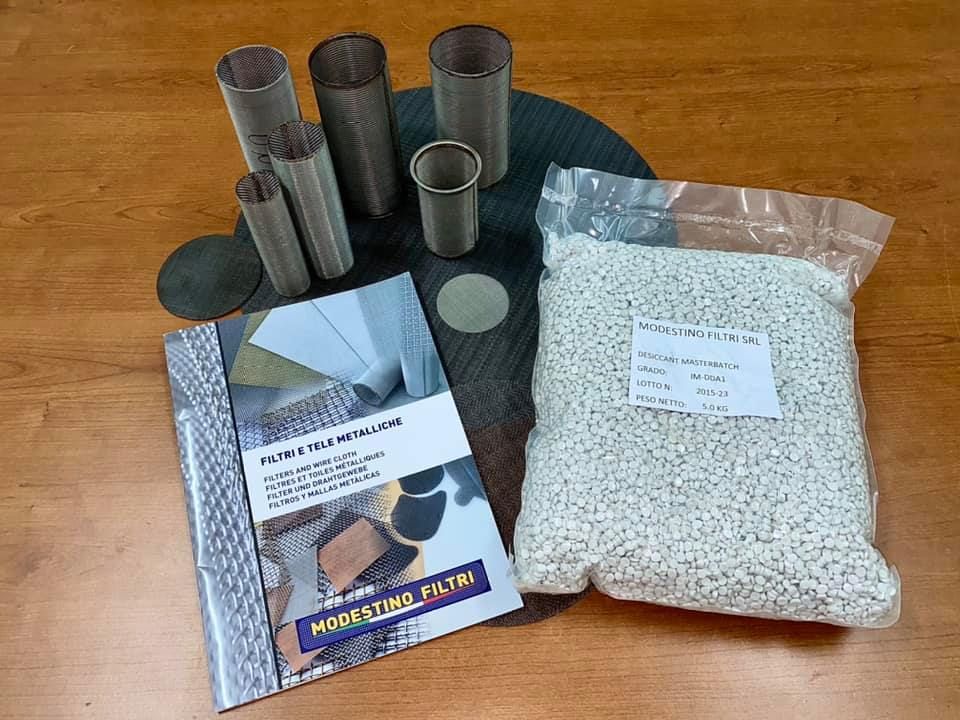Wire cloth filters
Wire cloth filters are essential components in many industrial processes, as they separate solid or liquid particles from a material flow. These filters are available in many shapes and sizes and are made of iron and stainless steel (AISI 304) to meet different customer requirements. To produce these filters, several wire cloth processing techniques are used, including punching, calendaring and blanking. Punching involves using a punching machine to create holes in the wire cloth. Calendering, on the other hand, involves using rollers to bend and shape the wire cloth, while blanking involves cutting the wire cloth into different shapes and sizes using a special machine.
Filtri
Grazie alla grande varietà di tessuti metallici e di tecniche di lavorazione disponibili, i filtri in tela metallica possono essere personalizzati per soddisfare le esigenze specifiche di ogni applicazione. Questi filtri sono utilizzati in diversi settori industriali, tra cui quello alimentare, chimico, farmaceutico e di processo.
Different types of filters
Edged
Used for chemical-pharmaceutical applications and for the production of special fibres. We produce single or multiple-ply aluminium-edged filters in various materials.
Special
Our technical department can assess the feasibility of filter elements for any type of industrial application.
Cartridge
Standard cartridges for major extrusion machines and cartridges for different sectors:
water, air, oil filtration, customised specials. Cartridges with multiple layers of wire cloth and/or perforated and/or micro-stretched sheets.
Wire mesh filters for sustainable production and recycling
In the world of manufacturing and recycling, plastic waste management is a common challenge for many companies. To guarantee the quality of end products and reduce waste, it is essential to use effective filter systems that can separate plastic particles from waste materials. A reliable solution for handling plastic waste is the use of wire mesh filters. The use of filters in plastic regeneration plants has many benefits, such as reducing the environmental impact of plastic production and the possibility of using recycled plastic as an alternative to the original materials. In summary, filters are crucial for the proper management of plastics and a more sustainable future.
Quality materials
Wide range of products
Cutting-edge technology
Expertise and professionalism








